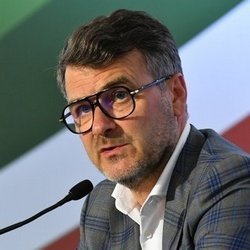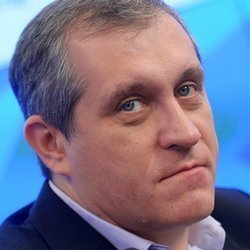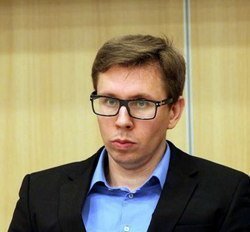“Shaimiev is the creator of the new political quality of Tatarstan, its political self-identity”
The first president of Tatarstan is among the three most influential and mentioned veteran politicians
Mintimer Shaimiev has turned out to be among the three most mentioned veteran politicians. The rating of their presence in the current agenda was made by the St. Petersburg Politics Foundation. The state advisor of Tatarstan and the first president of the republic has become the third in it — after Gorbachev and Luzhkov. Political experts agreed with the high assessment of his role in modern politics: “The wisdom inherent in Shaimiev helped a lot of people to make the right decisions”. Read more in in the material of Realnoe Vremya.
Shaimiev in the top three most mentioned veteran politicians
The rating is based on the frequency of mentions in the federal and regional press of high-ranking officials, the peak of whose career fell on the period from the 1980s to 2012.
The first in the top 100 most influential veteran politicians is President of the USSR Mikhail Gorbachev with an index of 38,800 mentions in the media. The second — Former Mayor of Moscow Yury Luzhkov, whom journalists mentioned 11,200 times.
The third is Mintimer Shaimiev, the state advisor and the first president of Tatarstan, was mentioned in the press 7,200 times.
“In general, in the modern Russian tradition, there has not developed the demand for political figures of the past eras in the political, managerial, humanitarian, economic spheres. In part, this is a tribute to the Soviet tradition, when the end of the career involved retirement or (in some cases) the transition to the diplomatic service,” noted in the study of the St. Petersburg Politics Foundation.
Not everyone in this list retains political influence, as Shaimiev does. For many, according to the authors, the restraints are:
- discontinuity of historical eras;
- psychological problems arising at the moment of the twilight of the apparatus career;
- absence of a stable tradition of horizontal movement between civil service, work in business, educational institutions and the scientific and expert environment;
- complexity of relationships with new management teams;
- old age.
Therefore, a significant part of the references to these officials is connected with the events of the past.
Employment opportunities for the ex-politician have been expanded
Nevertheless, according to the authors of the study, technically the employment opportunities of the ex-politician in comparison with the Soviet times have expanded. There are exceptions that allow veteran politicians to avoid media and political “oblivion”. Among them, the compilers of the rating name:
- attempts of self-actualization in political, expert spheres, sports and charitable foundations and projects (M. Gorbachev, I. Ivanov, partly G. Burbulis, K. Ilyumzhinov, M. Rakhimov, activities within the Yeltsin Centre);
- attempts to revive own political career (M. Kasyanov, A. Rutskoy);
- concentration on work in business and real sector of economy (M. Zadornov, N. Pugin);
- status of “political patriarchs” in their own region (E. Stroev, M. Shaimiev);
- obtaining formally high status in the current elite due to previous connections or the situational use of “veterans” during election campaigns (V. Dolgikh, N. Ryzhkov);
- transfer to diplomatic service (D. Ayatskov, A. Veshnyakov, D. Zavgaev, N. Ryabov);
- participation in the work of “zemlyachestvo” — friendly association of persons coming from the same area (taking into account the fact that a significant part of senior officials remains to live in Moscow).
“The wisdom inherent in Shaimiev helped many to make the right decisions”
Marat Bashirov, a political strategist, the president of the non-profit partnership National League of Specialists in Business and State Relations (GR-League) considered Shaimiev's presence in this rating absolutely justified “because it is very difficult to overestimate the role he played in the formation of modern Russia”:

Regarding the other former head of the region — brotherly Bashkortostan, Murtaza Rakhimov, the political expert noted that their careers were closely intertwined for some time: “On the one hand, these are two peoples that have a common border, but on the other hand, there was the conjunction with the Muslim, religious factor.” Both leaders, according to Bashirov, from the point of view of building relations between Moscow and the regions (this was especially noticeable in the early and mid-90s) played a role: “Historically, their weight in Russian politics is due to the fact that they always took a very constructive and moderate position. Perhaps, Mr Rakhimov was not so public, but his voice also sounded very confident and loud. And we know that the president still consults with them very often on the issues that relate to the national agenda.”
“They did not leave the political field in terms of the strength of the word. It is unlikely that they will return to any executive positions, and perhaps, it is necessary neither for them nor the logic of public administration being built today. We know that President Putin is actively engaged in personnel policy and growing new leaders, but we understand that the qualifications that the new governors have are still related to technocratic issues of public administration. But the issues of strategic vision... and I do not mean exclusively national issues: there is the waste management reform, the pension reform. To be honest, I was surprised that in the process of implementing the pension reform they did not ask the views of the old-timers of Russian politics. They would have saved from mistakes. In my opinion, it is necessary to involve them more actively in the state expert work,” Bashirov emphasized.
“He is the creator of the new political quality of Tatarstan”
Boris Mezhuyev, a political expert, publicist also noted that for the republic the figure of Shaimiev is still of great importance:

Therefore, according to the interlocutor of the publication, Shaimiev's influence still remains significant: “And it is even more significant than the influence of Luzhkov and Gorbachev. It has a more regional significance.” Speaking about the role of Murtaza Rakhimov, the ex-president of Bashkortostan, as a veteran politician, who took the 8th line in the rating, the political expert gave a less presentable assessment:
“There has always been the feeling of some difference between these two leaders. Shaimiev's influence was unquestionable, unconditional, but Rakhimov’s — it is difficult to differentiate between PR and his real deeds. The actions of the Bashkir leader always caused a share of scepticism, especially the methods of his management. Apparently, the difference in perception reflected in the difference in their positions in the ranking.”
As for the rest of the former high-ranking officials, including those who were not included in the ranking, many of them were out of work after their careers ended and were unable to convert their historical role into serious political influence. Among such Mezhuyev named the recently deceased first president of Crimea, Yury Meshkov, or the first mayor of Moscow, Gavriil Popov (the 40th).
Rakhimov also took actions, but Shaimiev managed to achieve more
Dmitry Mikhaylichenko, the head of the Institute of Regional Expertise, called the presence of veteran politicians, who have authority but do not have positions in politics, quite justified phenomenon.

But Rakhimov, according to the speaker, often thinks in black and white categories. “This is not quite the right conceptual and categorical construct, especially in the era of difficult internal political processes that took place in our country the entire post-Soviet period.” In addition, the role of the former Bashkir leader was levelled under Khamitov, Mikhaylichenko noted:
“Yes, in the first years, his influence was quite significant, but it was an outright opposition and almost dual power. It took Khamitov almost four years to knock the bottom out from under Rakhimov in the form of the Ural Fund, which concentrated huge resources and, accordingly, huge influence. Of course, now for Rakhimov there have come more favourable times: he is positioned as the politician who supports the course of Khabirov. But Rakhimov and Khabirov's courses cannot be identical on key issues. In my opinion, Khabirov's team is very actively using Rakhimov, showing him a certain respect, to maintain the continuity course. Regarding the direct influence of Rakhimov on the internal political processes of Bashkiria: he has certain resources, but I would not overestimate their power.”
Regarding the figures who have taken the first lines of the rating, for example, Gorbachev, the political expert is not sure that he retains any influence. The president of the USSR, according to him, simply has the right to express his point of view, he still remains a media man.
“In general, everyone has different perspectives. First, everyone left on different terms. Plus, I'm going to say a banal thing, but age also plays a role. Political centenarians and mere centenarians will have some influence on public opinion in an era of complex perturbations or political transit. Otherwise, if this does not happen — if transit is delayed, their influence is unlikely to spread beyond the media, which they retain now,” concluded Mikhaylichenko.